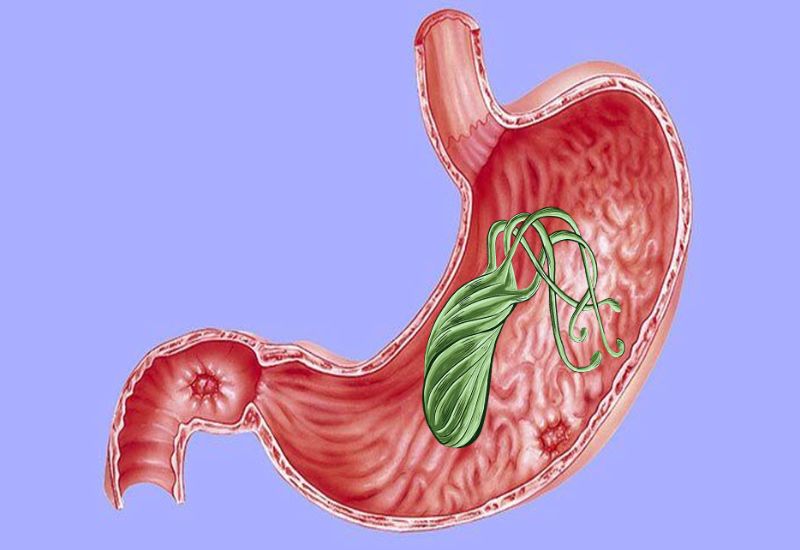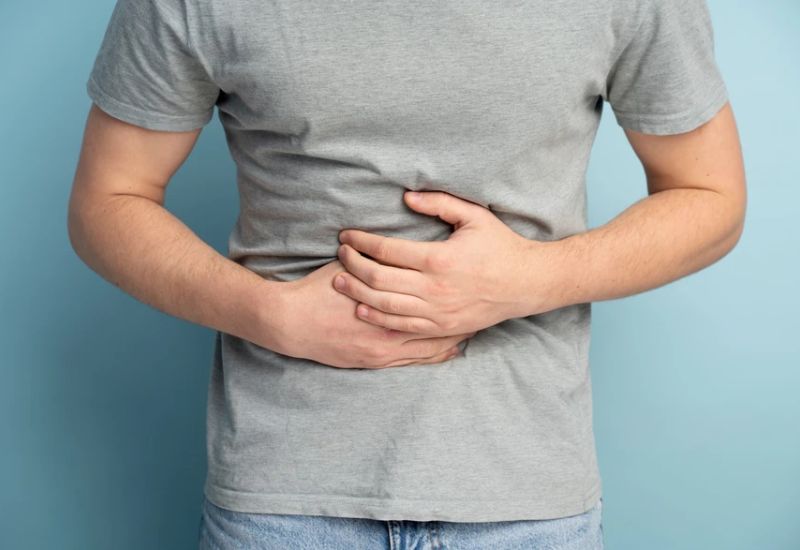The stomach is a vital organ involved in the digestion of food. Due to its constant activity, it is highly susceptible to damage. Gastric ulcers, which are open sores on the lining of the stomach, have a variety of causes. Understanding these causes of gastric ulcers is crucial for effective prevention and management of this condition.
1. What is a Gastric Ulcer?
Before delving into the causes of gastric ulcers, it’s important to understand what a gastric ulcer is. A gastric ulcer occurs when the stomach lining is damaged, leading to the formation of sores or ulcers. The exposed tissue beneath the protective lining can bleed, and if left untreated, gastric ulcers can lead to serious complications, including life-threatening ones. While anyone can develop a gastric ulcer, it is more common among older adults. Recent studies indicate a rising incidence among younger individuals, attributed to unhealthy dietary and lifestyle habits.
2. Common Causes of Gastric Ulcers
2.1. Helicobacter pylori Infection
Helicobacter pylori (H. pylori) is a primary culprit in the development of gastric ulcers. This bacterium lives in the mucous layer of the stomach lining. When conditions are favorable, H. pylori can cause inflammation and produce toxins that irritate the stomach lining, leading to ulcers. Chronic H. pylori infection also increases the risk of stomach cancer.

H. pylori bacteria is one of the main causes of gastric ulcers, a common digestive disease today.
2.2. Stress and Anxiety
Modern lifestyles often bring significant stress and anxiety, which can adversely affect the stomach lining and its function. Chronic stress can weaken the stomach’s defense mechanisms, making it more susceptible to ulcers.
2.3. Side Effects of Medications
Certain medications, especially nonsteroidal anti-inflammatory drugs (NSAIDs) like ibuprofen and aspirin, can contribute to the development of gastric ulcers. These drugs can irritate the stomach lining and interfere with its ability to repair itself, leading to ulcer formation.
2.4. Poor Dietary and Lifestyle Habits
Unhealthy eating and lifestyle habits significantly contribute to gastric ulcers. Skipping meals, eating too quickly, and engaging in vigorous activity immediately after eating can all stress the stomach. Additionally, a diet high in spicy foods, caffeine, and alcohol can aggravate the stomach lining.
Other factors contributing to gastric ulcers include pre-existing medical conditions and genetic predisposition.
3. Early Warning Signs of Gastric Ulcers
Recognizing the symptoms of gastric ulcers can lead to early diagnosis and treatment. While some individuals may exhibit no obvious symptoms, common signs include:
3.1. Upper Abdominal Pain
Pain in the upper abdomen, just above the navel, is a hallmark of gastric ulcers. This pain can be dull or sharp and may occur at any time, including during the night, causing significant discomfort and disrupting daily life.

Epigastric pain is an easily recognizable sign of gastric ulcers.
3.2. Bloating and Indigestion
Bloating and a persistent feeling of fullness, even long after eating, can be early indicators of a gastric ulcer. Damage to the stomach lining impairs digestion, causing food to remain in the stomach longer than normal.
3.3. Heartburn and Belching
Frequent heartburn and belching can also signal an underlying gastric ulcer. These symptoms result from acid reflux and excessive gas production, both of which are exacerbated by stomach lining damage.
3.4. Digestive Disturbances
Gastric ulcers can disrupt the entire digestive system, leading to alternating bouts of diarrhea and constipation. These disturbances are a response to the stomach’s inability to process food properly.
4. Effective Treatments for Gastric Ulcers
Treatment strategies for gastric ulcers depend on the underlying cause. Early intervention increases the likelihood of successful treatment.
4.1. Medical Treatment
Medication is the most common treatment for gastric ulcers. Patients with H. pylori infections require antibiotics to eradicate the bacteria. Additionally, other medications such as antacids, proton pump inhibitors, and protective agents can help reduce stomach acid and protect the stomach lining.
Patients experiencing adverse effects from NSAIDs should discontinue these medications under a doctor’s supervision.

Medical treatment is a commonly used method in the treatment of gastric ulcers.
4.2. Surgical Intervention
Surgery is a last resort, used only when medication fails or complications like perforation or severe bleeding arise. Surgical options include removing the ulcer or repairing the stomach lining.
5. Preventive Measures for Gastric Ulcers
Prevention is better than cure. Adopting healthy dietary and lifestyle habits can significantly reduce the risk of developing gastric ulcers:
– Consume a diet rich in fruits and vegetables to boost vitamins and antioxidants that strengthen the immune system and reduce inflammation.
– Increase fiber intake from sources like oats, carrots, and peas to support digestive health.
– Incorporate probiotics found in yogurt and fermented foods to enhance gut health and alleviate digestive issues.
– Ensure adequate zinc intake from foods like beef, oysters, and spinach to support immune function and wound healing.
– Limit alcohol, caffeine, and tobacco use to prevent irritation of the stomach lining.
– Avoid spicy and acidic foods that can exacerbate gastric irritation.
– Manage stress through relaxation techniques and regular exercise.
Understanding the causes of gastric ulcers and other relating information can help individuals take proactive steps to prevent and treat this condition effectively.








